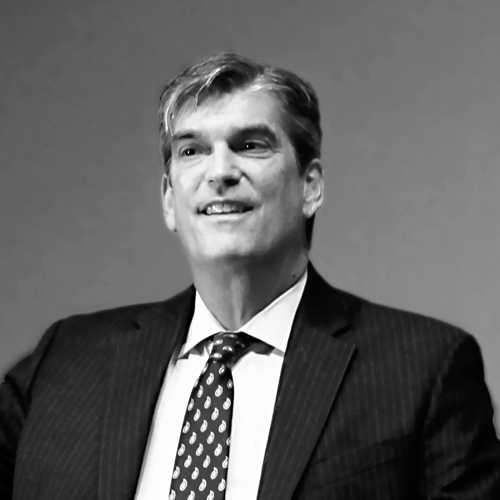Zafar Hasan has always been a man with a strategy. Even early on in his career, he performed his own gap analysis. “I asked myself, ‘Where are my professional shortcomings? What do I need to do to fill these gaps?’” Hasan recalls.
Back then, he was in Big Law, earning his first job at Mayer Brown. “It was a great place to learn the ropes and how to get things done,” he says.
During his time at Mayer Brown, he noticed a skill that the standout partners at the firm possessed: commercial judgment. This motivated Hasan to enroll in night school at the University of Chicago Booth School of Business. Around the time he earned his MBA, the dot-com bubble reduced the securities work available to young lawyers, which led Hasan to fill the next gap. He took a position with the US Securities and Exchange Commission for three years as an attorney/advisor.
AT A GLANCE
Company: AES Corporation
Headquarters: Arlington, Virginia
2016 revenue: $14 billion
About: AES has about 21,000 employees that fuel quality of life for tens of millions of customers in seventeen countries across four continents, while creating the power generation and delivery systems that will enable a clean, unbreakable energy grid.
This type of growth mind-set throughout his career has propelled him to his current role as vice president and chief corporate counsel for Fortune 150 energy company AES Corporation, where he has been for more than a decade.
At AES, Hasan is one of two vice presidents in the law department, with many day-to-day responsibilities for public company matters. These range from M&A work to SEC compliance to financing the development of power plants. He also works on transactions globally, including recent deals in Panama, Argentina, and Chile.
“AES has an empowered, diverse culture with a focus on transactions, so there is a lot of opportunity to grow here,” Hasan says.
One of the major differences between working at a firm in comparison to in-house is the dynamic environment. “You go from a narrow focus to a much broader set of responsibilities. You will be asked to participate in initiatives that are outside of your core competency, but that’s where the leadership opportunities exist,” he says.
This increased scope of responsibility has led Hasan to adopt a more comprehensive outlook on leadership, applying a value-based strategy to both personal and professional aspects of his life. These are just a few of the practices he regularly employs to improve himself not only as a leader, but also as an individual.
Humor, Telling Your Story, and Other Overlooked Leadership Traits
Hasan believes that active listening skills and diplomacy are crucial, but often ignored as leadership traits. According to his peers, Hasan embodies these characteristics on a daily basis.
“Zafar has a keen ability to take input from a range of people and distill it into a plan of action,” explains Jeff Greenberg, a partner of Latham & Watkins, which advises AES on project development and finance matters. “That skill set is particularly important in the energy industry, which is complex and continually evolving.”
Equally crucial is the ability to help make people laugh. “My sense of humor got me out of many, many corporate jams,” Hasan says.
Hasan says it’s also important to be able to see several steps ahead and work proactively to help one’s company. For instance, in recent years, there has been an increased focus on environmental concerns in the energy sector. Hasan knew that AES had made significant progress in this area. The company reduced emissions by about 17 percent over the past five years, and current projects have the capacity to reduce emissions by an additional 20–30 percent in the US business unit.
In fact, Hasan approached AES’ chief strategy officer about publishing a presentation on this topic. “I knew we had a great story to tell, but we needed to be proactive and tell it,” Hasan says. Since the report was published in November of last year, it has been well-received by investors and other stakeholders.
Another area that Hasan believes should never be neglected is talent development. “We spend a lot of time on this, as Brian Miller (AES’ general counsel) has made this a top priority for the department,” Hasan says. “We have two attorneys that started as temps. We saw their potential and helped develop them into long-tenured lawyers in significant roles.”
They’re not the only ones at AES to do so, either. “Many law department alumni have moved to larger roles within AES, including as business leads in countries around the world,” Hasan says. “Most of this success comes from hiring great people. But we also work hard to build a department culture that focuses on leadership, as well as commercial and strategic thinking.”
Embracing Change
There are few sectors that have experienced the types of drastic changes that the energy industry has undergone over the past decade. With the pressure to be more environmentally conscious, the power sector has been shifting focus to alternative sources of energy. In 2015, clean energy investments hit a high of close to $330 billion—nearly six times higher than in 2004.
In addition to the emissions reductions achieved by AES, the company has been shifting its attention to renewables.
AES’ M&A team, including Hasan, have recently come out of a ten-day stretch finalizing one of AES’ most valuable acquisitions. The company announced in February that it will acquire sPower, the largest independent solar company in the United States. The $853 million deal will significantly grow AES’ solar energy output and pipeline. With sPower in its portfolio, the company will have an additional 1,274 megawatts of utility-scale solar plants and a pipeline that will expand the solar business years into the future.
The transformation of the energy sector is still in its early stages, but Hasan credits AES’ CEO Andrés Gluski and the AES board for adapting to the changes, as well as for effectively communicating the company’s vision. Hasan views the evolution of the industry as a tremendous professional opportunity for AES and its people, noting that “AES is on the right track, and the law department will play a significant role in executing AES’ strategy.”
“Most of this success comes from hiring great people. But we also work hard to build a department culture that focuses on leadership, as well as commercial and strategic thinking.”
Strategic Reading
Twenty years out of law school, Hasan is still reflecting about how to fill his own knowledge gaps. “If you are in a transforming industry, it’s important to become a strategic reader—an attorney who keeps up with changes in the law as well as the latest thinking in industry and leadership,” he says.
He insists that he will not be going back to school for any more degrees, so strategic reading will be a driver for personal and professional growth. His latest read, Thinking, Fast and Slow by Nobel Prize recipient Daniel Kahneman, focuses on decision-making and the problem of overconfidence, which Hasan believes is particularly relevant in a transforming industry.
Hasan gushes about his wife and four young kids, and says he also finds strategic reading to be crucial to raising a family.
“Let’s say one of your kids performs poorly in a sport, or a school assignment,” he says. “You may have an immediate emotional response. But Thinking, Fast and Slow might say that if you are trying to focus on life lessons as opposed to short-term results, then you should keep that immediate response in check and let your ‘higher brain’ find the opportunity for your child to learn from failure. In the long-term, they will know how to deal with setbacks and be better equipped for life.” And better equipped for leadership.
_____
kirkland & ellis LLP:
“Zafar is the kind of client every lawyer dreams of having—smart and business savvy, with a practical, constructive approach to everything he does. It’s been an outright pleasure working with him these past ten years.
—Richard Aftanas, Partner


